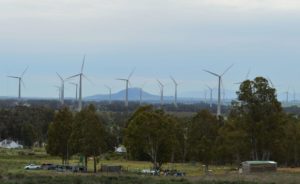
Wikipedia
Renewables in Africa make sense in one big way. In much of the continent, grids don’t yet exist to carry power from a huge thermal generator to all the corners where it’s consumed. Newer technologies such as solar and wind could reduce the need ever to build them.
There’s a precedent. In Africa’s telecom sector, the lack of fixed infrastructure led to the primacy of mobile phones for everything from democracy and health to banking. Mobiles, and the services available through them, reached areas landlines never made it to. Some see that kind of “leapfrogging” already happening in renewable energy vs. traditional energy.
“Africa’s green power sector resembles mobile communications a decade ago,” wrote the authors of a study released this month by the Economist Intelligence Unit. “There is a large pool of African consumers able to buy power but simply lacking appropriately priced and designed options.”
The progress is evident in a comparison of renewables as a share of total power systems, in Africa and elsewhere. In the chart below, the top five African countries by market share are compared to the G7 group of developed nations. The latter for the most part have power grids, and therefore encounter a problem when it comes to integrating renewables into existing systems. But they also have a lot more money to invest.
Of course, there’s still a long way to go before Africa can really lead the world in renewables. Most of the continent still runs on coal—49% of the power comes from the most polluting power source on the planet, and a large chunk of the rest is gas. That compares to just 5% from renewables. (Large hydro schemes account for another 20% in Africa.)
There are a range of projects underway in Africa. At one end of the spectrum, private companies are offering pay-as-you-go solar units on a householders. At the other, governments are building wind farms.
Read more here.
